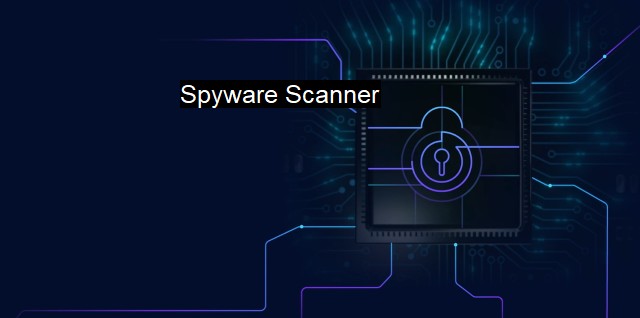What is Spyware Scanner?
The Importance of Spyware Scanner Tools in Cybersecurity Defense Against Espionage Tactics
A spyware scanner is a special type of cybersecurity software designed explicitly to identify, remove, and block spyware. Spyware refers to a category of malicious code that infiltrates and infects your system without your consent or knowledge. Generally, it is designed to steal sensitive user data, such as credit card details or password information, track internet browsing habits, or indulge in various other harmful activities.a spyware scanner becomes extremely significant. With hackers becoming increasingly intelligent and malicious software becoming more complex and potent, the odds cybersecurity threats pose continue to amplify. What makes spyware particularly nefarious is its covert nature and swift adaptability. Typically, it masks itself within seemingly harmless applications or downloads, making it incredibly challenging for the average user to detect.
This is where the role of a spyware scanner becomes indispensable. Also known as an anti-spyware program, a spyware scanner primarily carries the responsibility of probing the system's depth and breadth for potential spurious programs or components. Unlike conventional antivirus programs, which primarily focus on viruses, a spyware scanner is carved to detect and eliminate spyware.
The scan process involves the software examining files, applications, and various system areas, matching the data against its vast repository of known spyware signatures. When it notices a match, the scanner highlights the suspect program or file and usually offers a range of response options. Most high-quality spyware scanners are competent enough to eliminate threats entirely. sometimes user intervention may be required to either quarantine the threat or permanently delete it, depending on its severity and persistence.
Spyware scanners come in two variants- real-time and on-demand protection. Real-time scanners continuously monitor and search for spyware signatures, thus providing active security. On-demand scanner, on the other hand, only scans when manually initiated. Although both types serve their respective purposes, they often perform optimally when used simultaneously.
A competent spyware scanner should possess a consistent, updated database of spyware definitions. This is the repository against which scanned files are matched, and therefore, should capture as many spyware types and versions possible to ensure strong and thorough protection. It should also provide robust real-time protection while being lightweight on the system, causing little to no effect on the system performance.
In the backdrop of rising cybersecurity threats worldwide, people are increasingly digitizing their lives. From financial transactions, personal communications, to conducting businesses, digital platforms play a crucial role. As such, protecting oneself against malicious infiltration and data theft becomes paramount. Despite having antivirus software providing a protective shield against most known threats, the complexity and latent nature of spyware often surpass common antivirus detection.
This is why a specialized spyware scanner becomes a necessity on every device. Spyware's persistent infiltration and the potential of misuse of one's private data show why one should not merely rely on antivirus software but should also be equipped with a potent spyware scanner. as useful as a spyware scanner is, it remains one piece of a much larger cybersecurity infrastructure where regular updates and vigilance play crucial parts ensuring overall cyber hygiene.

Spyware Scanner FAQs
What is a spyware scanner?
A spyware scanner is a type of software that is designed to detect and remove spyware from a computer. Spyware is a type of malware that is used to spy on a user's activities, steal their personal information, and perform other malicious activities. Spyware scanners work by scanning a computer's files and processes for signs of spyware and then removing any detected threats.How does a spyware scanner differ from an antivirus program?
While both spyware scanners and antivirus programs are designed to protect a computer from malicious software, they focus on different types of threats. Antivirus programs primarily target viruses and other forms of malware that can damage a computer or disrupt its operation. Spyware scanners, on the other hand, are specifically designed to detect and remove spyware, which is a type of malware that is used to spy on a user's activities, steal their personal information, and perform other malicious activities.Do I need a spyware scanner if I already have antivirus software?
Yes, it is recommended to use both antivirus software and a spyware scanner for comprehensive protection against cyber threats. While antivirus software can detect and remove many types of malware, spyware scanners are specifically designed to target spyware threats, which may not be detected by antivirus software. By using both tools, you can ensure that your computer is protected against a wide range of cyber threats.Are all spyware scanners created equal?
No, not all spyware scanners are created equal. Some are more effective than others at detecting and removing spyware, while others may miss certain types of threats. It is important to research and choose a spyware scanner that is reputable and has a proven track record of effectively detecting and removing spyware. Additionally, it is important to keep the spyware scanner software up-to-date to ensure that it is capable of detecting and removing the latest spyware threats.| | A | | | B | | | C | | | D | | | E | | | F | | | G | | | H | | | I | | | J | | | K | | | L | | | M | |
| | N | | | O | | | P | | | Q | | | R | | | S | | | T | | | U | | | V | | | W | | | X | | | Y | | | Z | |
| | 1 | | | 2 | | | 3 | | | 4 | | | 7 | | | 8 | | |||||||